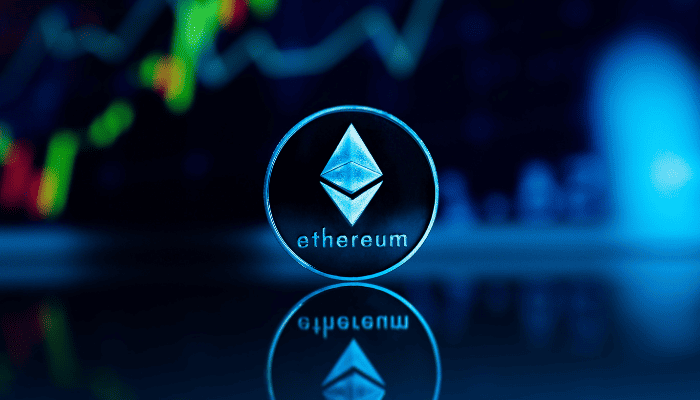Gas fees are an important part of the cryptocurrency world. They are a fee paid to miners for processing transactions on the blockchain network. Gas fees can vary depending on the type of transaction and how congested the network is, but they can also be reduced by taking certain steps.
Crypto gas fees are calculated based on the amount of data in a transaction (in bytes) and the price per unit of gas (Gwei – for Ether tokens). Data size affects the computing power it takes to process a transaction, while Gwei determines its cost. When sending cryptocurrencies such as Bitcoin or Ethereum, users must pay these fees for their transactions to be processed by miners.
Fortunately, there are several ways to reduce crypto gas fees and save money when making cryptocurrency transactions. These include:
- Using an Arbitrum bridge – This moves transactions off the main Ethereum blockchain and onto a sidechain. This allows you to take advantage of the speed and cost benefits of the sidechain while still maintaining the security of the main chain.
- Using SegWit (Segregated Witness) addresses – SegWit addresses have lower transaction costs because they contain fewer bytes than regular ones.
- Batching – This combines multiple smaller payments into one larger payment – which reduces data size and thus lowers total transaction costs.
Also, some wallets offer dynamic pricing features which automatically adjust your fee according to current network conditions so you don’t overpay for your transactions.
The Role of Arbritum in Cryptocurrency Markets
Arbitrum is a Layer 2 (L2) scaling solution designed for Ethereum. It facilitates faster, cheaper and more private transactions. This feature enables users to transfer their transactions from the primary Ethereum blockchain to a sidechain. By doing so, they can leverage the sidechain’s speed and cost advantages while upholding the main chain’s security.
The sidechain offers privacy features, including zero-knowledge proofs, that enable users to maintain the confidentiality of their transactions from third parties. Arbitrum can support decentralised finance (DeFi) applications, including lending and trading platforms.
Furthermore, Arbitrum can potentially boost the adoption of cryptocurrency markets by offering a secure and efficient platform for DeFi applications.
Analysing the Risk-Reward Ratio of Utilising Arbritum for Crypto Investments
When investing in cryptocurrency, the risk-reward ratio is key and cannot be overlooked. Arbritum is a platform that gives users the liberty to take advantage of arbitrage opportunities in the crypto market. This means that users can buy and sell different cryptocurrencies on different exchanges simultaneously, taking advantage of price discrepancies between them. While this strategy can be profitable, it also carries a certain amount of risk.
The main risks associated with using Arbritum are liquidity risk and counterparty risk. Liquidity risk refers to the possibility that you may be unable to find buyers or sellers for your trades when needed. Counterparty risk is the chance that one of the parties involved in a transaction will default on their obligations. However, if used correctly, Arbritum can allow investors to profit from arbitrage trading without putting too much capital at risk.
How Does Arbitrum Leverage the Power of Optimistic Rollups?
Arbitrum leverages the power of Optimistic Rollups to enable faster and cheaper transactions on Ethereum. Optimistic Rollups are a type of Layer 2 scaling solution that allows users to move their transactions off-chain while still maintaining the security of the underlying blockchain.
For this to be done, a technique called “optimistic execution,” is put to use, which allows users to submit transactions to an off-chain rollup without waiting to be confirmed on-chain. The rollup then batches these transactions together and submits them as one transaction to the main chain.
This goes a long way in reducing the amount of data that needs to be stored on-chain, resulting in lower fees and faster transaction times. Arbitrum also uses fraud proofs and other techniques to ensure that all transactions are valid before they are included in the rollup. This ensures that users can trust that their transactions will be secure even when off-chain.
Is It Worth Investing in a Crypto Wallet to Bridge Your Asset Network?
Acquiring a cryptocurrency wallet presents a viable means of establishing a connection between one’s asset network and guaranteeing the safety of their digital assets. A crypto wallet facilitates the sending and receiving of digital currency and the monitoring of the associated balance. It also serves as a means of safeguarding against cyber threats by furnishing additional protection for your digital assets.
Investing in a cryptocurrency wallet can facilitate the management of numerous accounts from a singular location, thereby simplifying the process of monitoring all financial transactions. Furthermore, certain wallets provide other functionalities, such as multi-signature authentication, enabling several users to authorise transactions before finalisation. This measure aids in safeguarding against fraudulent activities and unauthorised entry into financial resources.
Acquiring a cryptocurrency wallet can potentially facilitate the utilisation of contemporary advancements, including decentralised finance (DeFi) systems, that enable individuals to access financial services without dependence on conventional banking establishments.
